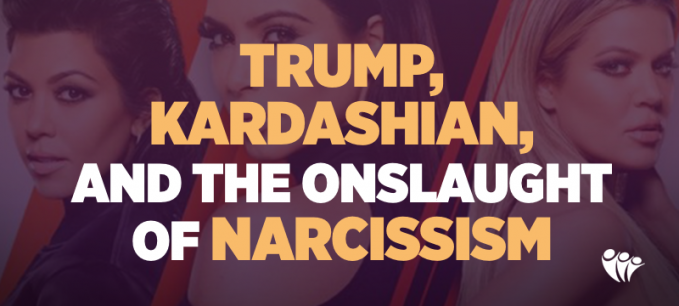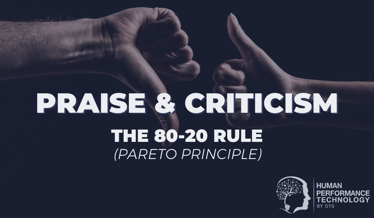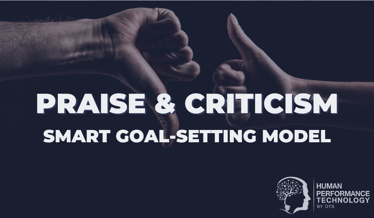Trump, Kardashian & the Onslaught of Narcissism

“I was always dreaming about very powerful people—dictators and things like that. I was always impressed by people who could be remembered for hundreds of years, or even like Jesus, being remembered for thousands of years.”—Arnold Schwarzenegger, 1977
When we're young, the world is full of magic and wonder.
As we grow, we gradually learn that the world is full of bullshit.
WAIT, WHAT? Santa Claus isn't real? Magicians are tricksters? Movies are "pretend"? NO WAY! Babies don't come from storks? Wrestling is fake? Soccer players “take dives”? SERIOUSLY?! Models are “airbrushed”? Singers "lip sync"? Cigarettes aren't healthy? YOU LIED TO ME! The media is biased? Politics is corrupt? Richard Nixon secretly recorded people? SHUT UP! Bill Clinton did have sexual relations with that woman? UNTHINKABLE! The church covered up sexual assault? HUH? Fat isn't the enemy, and sugar isn't harmless? SURELY NOT! Arnold Schwarzenegger took steroids? Lance Armstrong cheated? Enron cooked the books? Steve Jobs was an asshole? The Internet is filled with fake quotes? STOP IT, JUST STOP, OKAY!
I could go on. But you get the gist: Many things that look wonderful or brilliant from a distance aren’t what they appear once you scratch the surface. To use an older saying, all that glitters is not gold. To use a more modern saying, y'all fake as hell.
Around 2,500 years ago, a man called Alexander III of Macedon conquered vast territories to become the most powerful leader in the world. Alexander believed in the “Homeric ideal”—that a short but exceptional life was preferable to a long but mediocre existence. I consider Alexander to be the first truly successful narcissist. He devoted his life, utterly, not to the pursuit of happiness or goodness, but to the pursuit of glory, the pursuit of self, pushing his image across the continent and naming over 70 cities after himself, including Alexandria in Egypt. He died at 32, forever immortalised as Alexander the Great—a narcissist’s ultimate victory—subsequently becoming a major role model for Caesar, Napoleon, and other rulers who sought the great life, a win-at-all-costs life advanced by stagecraft, smoke and mirrors, rather than the good life, a life built on self-reflection, substance and meaning.

If you left Earth after Alexander's death and had just arrived back on the planet, you would be forgiven for thinking little has changed. Trump, the “democratically” elected leader of the free world, appears to be another in a long line of Alexander’s disciples, displaying a similar knack for naming property after himself, living a life ostensibly dedicated to the pursuit of glory, of self, a businessman on a quest for eternal brand name recognition.
The story of glory clearly isn’t anything new, but more and more we are hearing about “the modern narcissism epidemic.” Research indicates a steep rise in narcissism from previous generations. The “poster child's” for this disturbing new era are the likes of Paris Hilton and the Kardashians—people with no real talent who are “famous for being famous.” To some, they represent everything wrong with the world: vacuous, self-obsessed idiots idolised by the brain dead masses. To the haters, these glittering empty vessels are insults to humanity—set backs. To others, they might be seen as heroes, style icons, role models, entertainers, savvy entrepreneurs, or marketing geniuses, who the haters love to hate only because they’re jealous bitches or intellectual snobs.

Some people are understandably dismayed, even angered, by the rise of a selfie-obsessed culture and the shallow cult of celebrity, but it’s important to check you’re not a hypocrite before you turn critic, fool. (How are my rap skills?) I mean, come on, don’t tell me you’re not fascinated by beauty and power; that you haven’t recently clicked on some salacious gossip story in your news feed, perved on some celebrity’s OMG AMAZING BEACH BODY JUST WEEKS AFTER HAVING A BABY, messed around with image filters on your phone, done a selfie "duck face" (or ten), artificially enhanced your online self, or followed some mindless reality TV show at some point in your life. Lest we forgot humans are animals first, people second. People, yes—but people with monkey brains firmly cemented into the base of our skulls.

A bit of research that always makes me laugh involves male macaque monkeys. Researchers have found these monkeys will sacrifice a food treat for a chance to look at pictures of two—and only two—things: female rear ends (monkey porn), and faces of dominant males (monkey celebrities). For male monkeys, motivation basically boils down to sex and fame. As for female monkeys … er … I have no idea.
Speaking of female monkeys, though, the most powerful video I’ve seen in recent memory concerns Taylor Swift. There she is, in this video, looking sexy and sassy, the popular party girl, dancing with lots of beautiful people—her friends? Maybe, I guess, who knows, but wow look at her go, she’s so cool and happy and trendy, singing about boys and clothes. So cool. The video switches to a morning talk show where she is being asked pressing questions about cats: “Do you think that cats know that you’re Taylor Swift?” So fascinating. We switch again to a shot of Google: a million articles a month are published about the pop singer. This imagery is contrasted with another news story from the same month, one concerning a major piece of the Antarctic ice sheet melting. Only a tiny fraction of humanity is actually aware of the news, let alone interested. “The planet is in profound trouble,” we are warned by the narrator, and we are preoccupied with Taylor Swift’s legs.

It makes me feel sick.
The video seemed to prove a point that is becoming increasingly true: The most popular things rarely matter, and the things that really matter are rarely popular.
The video commentary however also reminds me of one of the most deeply penetrating observations about human society that comes from (of all places) the Hollywood blockbuster, Gladiator. Two Roman senators are discussing whether the announcement of “150 days of games” by Emperor Commodus will distract the people of Rome from food shortages, financial mismanagement, and the fact they are generally being oppressed by a horrible, narcissistic tyrant.

Gracchus: Fear and wonder, a powerful combination.
Falco: You really think people are going to be seduced by that?
Gracchus: I think he knows what Rome is. Rome is the mob. Conjure magic for them and they'll be distracted. Take away their freedom and still they'll roar. The beating heart of Rome is not the marble of the senate; it's the sand of the Colosseum. He'll bring them death—and they will love him for it.
I’m growing concerned that our emerging breed of idols will bring us death—and we will love them for it.
Topics:
Emotional Intelligence
Theo Winter
Client Services Manager, Writer & Researcher. Theo is one of the youngest professionals in the world to earn an accreditation in TTI Success Insight's suite of psychometric assessments. For more than a decade, he worked with hundreds of HR, L&D and OD professionals and consultants to improve engagement, performance and emotional intelligence of leaders and their teams. He authored the book "40 Must-Know Business Models for People Leaders."



We Would Like to Hear From You (0 Comments)